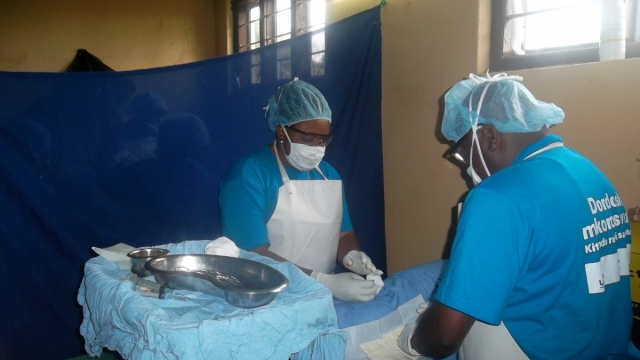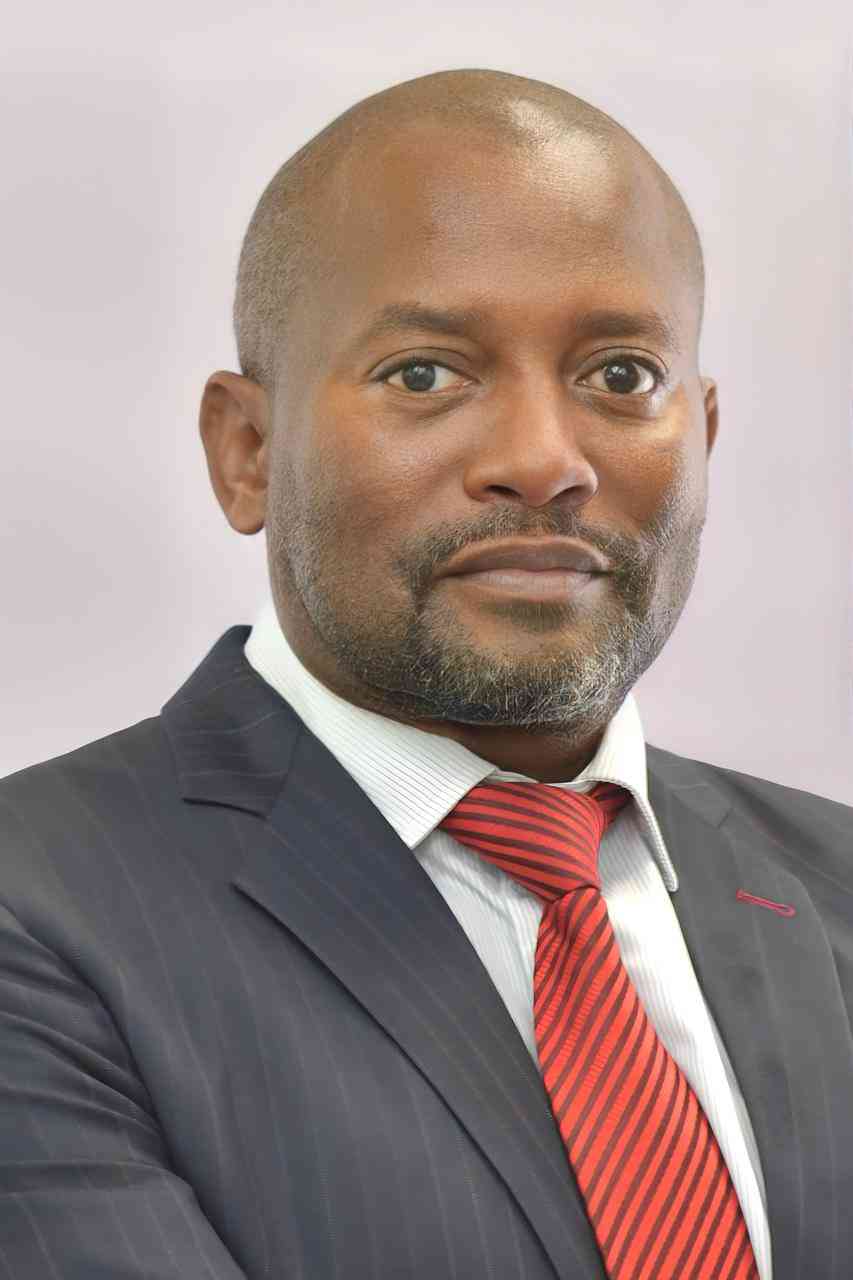
NAOMI Muti (34), a receptionist at a male circumcision clinic in Harare, spends the greater part of her day attending to various enquiries from men about their health.
BY CLIFF CHIDUKU

She admits that some men are reluctant to engage her on issues regarding their reproductive health.
“When they see a lady attending to them,” Muti says, “they wonder what they can be told with regard to male circumcision by a woman.”
But such responses have not discouraged her at all. For the five years she has been in this job, she has successfully sweet-talked thousands of men to go under the knife.
Muti’s daily routine involves responding to questions regarding voluntary medical male circumcision (VMMC). At the end of each discussion, she invites them to get circumcised.
A woman talking to men about male circumcision would have been improbable in an African set-up like Zimbabwe. But attitudes are changing, and more women are taking a stand on male circumcision.
- Chamisa under fire over US$120K donation
- Mavhunga puts DeMbare into Chibuku quarterfinals
- Pension funds bet on Cabora Bassa oilfields
- Councils defy govt fire tender directive
Keep Reading
To Muti, spreading the gospel of VMMC is not because she is paid to do so, but doing a national service as she knows that it is her fellow women who will benefit most from the procedure. “I believe women can make the best male circumcision ambassadors,” Muti said. “They have the power to convince their husbands and boyfriends to go for it.” She is convinced that if VMMC is to be a success, then stakeholders should tap into the power of influence that women possess. “Women possess this rare power of influence and if they can use that same influence to persuade their spouses to go and get tested and eventually circumcised, then they would have done a favour to themselves,” she said.
Studies have shown that the benefits of male circumcision have been proved to extend to women. It has been demonstrated that partners of men who are circumcised have a less risk of contracting the human papilloma virus (HPV), a sexually transmitted virus that causes cervical cancer.
Statistics released by the Health ministry reveal that more than half a million men have been circumcised since the inception of the programme in 2009.
An estimated 2 801 men were circumcised in 2009 with the figure rising to 11 176 the following year. In 2013, 112 084 men were circumcised against an annual target of 115 000. This year, 97 139 men have been circumcised against a target of 266 580.
Researchers from the United States’ Johns Hopkins Bloomberg School of Public Health recently finished a multi-year study that shows the efficacy of VMMC as a means of reducing the rate of HPV infection in women.
The research revealed that women partnered to circumcised men have a 25 to 30% reduction over time in the number of HPV infections. Though the findings were positive, it recommended couples to be cautions, encouraging them to practice other forms of safe sex. “Don’t think of this as a magic bullet,” it said. “It’s part of a programme of protection.” From such findings, males have been adopted as an effective intervention for reducing the prevalence of HPV infection in women. Director of the Aids and Tuberculosis Unit in the Health and Child Care ministry, Owen Mugurungi, said women are important partners in the male circumcision matrix. “As a ministry, we encourage women to accompany their partners to VMMC centres and for support. Women have better health-seeking behaviour as compared to their male counterparts, therefore, based on their experience, they can positively influence the health-seeking behaviours of men,” he said. “We encourage couples to talk about VMMC and its benefits together. We also encourage mutual consensus and agreement from both parties.”
Besides pain, the fear of sexual changes is one of the greatest fears that many people have when it comes to the issue of getting circumcised.
On the fear that the “pleasure part” is removed during the operation, Mugurungi said the man will still function as normal, if not better, once the process is correctly done.
“Sexual pleasure is defined differently by different people based on their socialisation process and background. The biggest sexual organ is the brain, which interprets the feelings and sensations and gives them a meaning and not the organ itself,” he said. “General pleasure loss after circumcision is, therefore, not an accurate perception. The most sensitive part in the male reproductive anatomy is the glandspenis and this is not in any way tampered with during circumcision.” He said circumcision only involves the removal of the foreskin, which is the part of the organ which can easily predispose the penis to infections. Award-winning poet Albert Nyathi and his son Mthabisi got circumcised last year, and says his wife Caroline played a leading role in convincing them. “I had heard about it, but I was reluctant until we sat as husband and wife with medical experts to hear more about it. We looked at how, as individuals (husband and wife) we would benefit if I got my foreskin removed,” said Nyathi, who is Population Services International male circumcision ambassador, along with several other local celebrities.
Nyathi said his wife gave him a pat in the back after getting circumcised as she knew she was also a direct beneficiary of the procedure.
Babra Maramba, an accountant at a blue chip company in the capital, said: “We need to sit down with our partners and talk about it because cervical cancer is a silent killer. It is worse than HIV so we all need to take an active role for the sake of our own lives and health as well.”
Cervical cancer accounts for 32% of all cancers among women. An estimated 3 million women mainly in rural areas are believed to be suffering from cervical cancer.
In a patriarchal society like Zimbabwe, some women still view themselves as minors who have no say in issues relating to sex. Monica, Maramba’s workmate, said: “I always thought that since circumcision is about men, it only benefits them. This is something I need to seriously consider.”
However, she is afraid of introducing the subject to her husband. In most African communities women are not allowed to share their opinions on sexuality.
“I need to summon all my courage because I might get a nasty reaction as he might feel I am accusing him of bed-hopping or I don’t trust him. I need to be very careful as issues relating to sex are not openly discussed.”
Since cleanliness is an essential component of life, some women said they were in total support of VMMC as it contributes to their hygiene.
Otillia Nharo reckons that women can’t be kept out of the equation, saying: “It only makes sense that I am involved from the beginning because a circumcised man needs her spouse’s support, to nurse the wound and shoulder the burden of abstaining from sex for the six weeks as it heals.”
The Zimbabwe National Family Planning Council (ZNFPC), a parastatal responsible for the provision of a comprehensive package of sexual reproductive health services, said there are numerous benefits that woman can accrue from their circumcised men. “Penile hygiene is easily maintained after circumcision and assures the woman of a more hygienic sexual relationship. Male circumcision also reduces the risk of the male organ bruising and tearing during sexual intercourse allowing the woman a safer and more satisfying sexual experience,” said ZNFPC assistant director for marketing and communication Martin Mukaronda. However, experts stressed that the tried and tested abstinence, being faithful and correct condom use should remain the mainstay of the country’s approach as the government expands VMMC programmes as a way of buttressing its quest for zero new infections.
The introduction of the non-surgical method (PrePex ring) ensures that people can have a choice of which method they prefer. Some men might want to get circumcised, but are not comfortable with the anaesthetic injection given before the surgical method. In that case, they can have the non-surgical method in which a special “ring” called the PrePex is used. Both methods are meant to complement each other.











